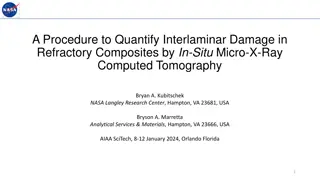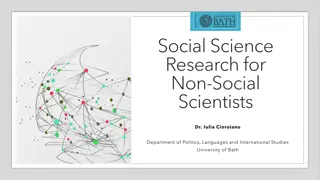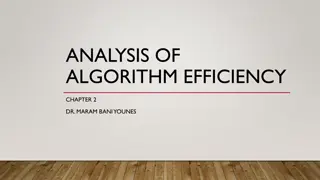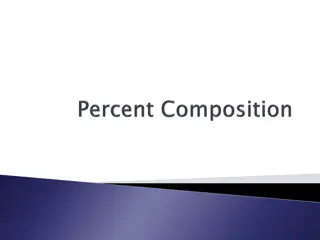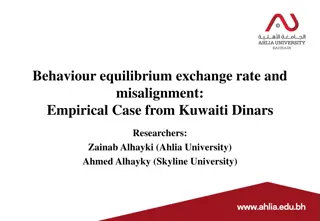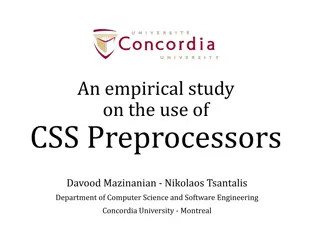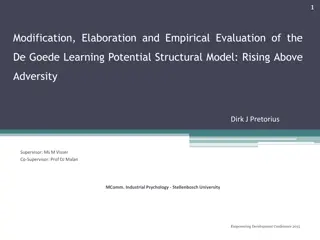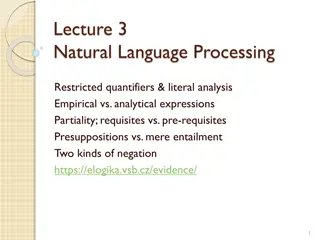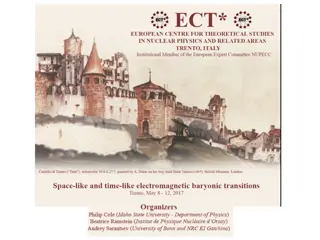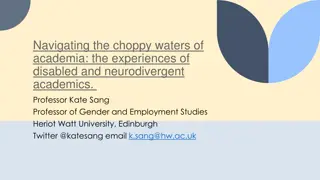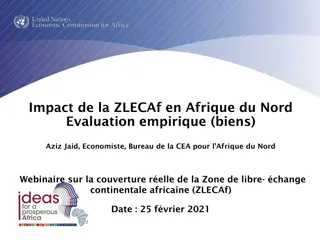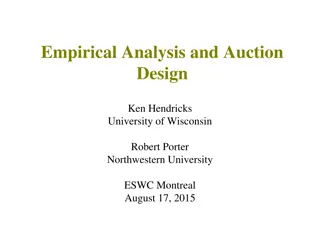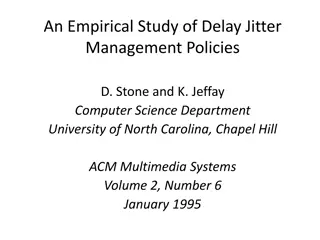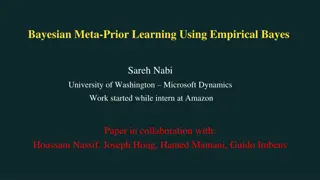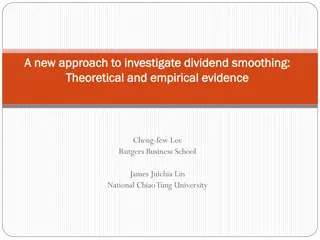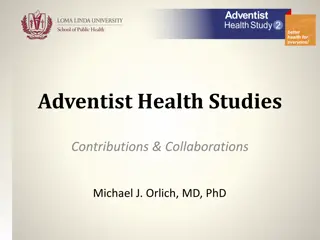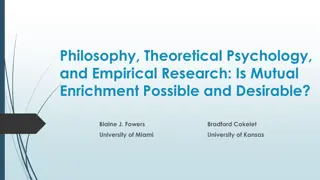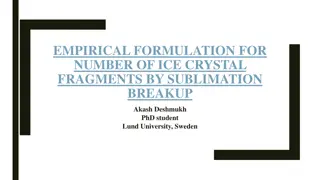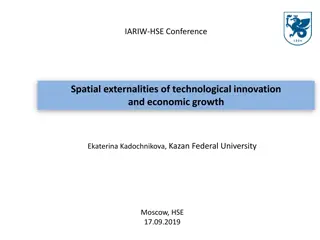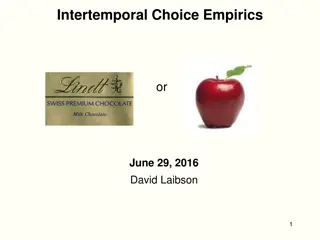Procedure for Quantifying Interlaminar Damage in Refractory Composites Using Micro-X-Ray CT
This study presents a method to quantify interlaminar damage in refractory composites through in-situ micro-X-ray computed tomography. The procedure aims to capture the progressive failure in ASTM-sized specimens, providing empirical data for improving simulations of composite materials. Various spe
6 views • 19 slides
Remarkable Opportunities in Higher studies after Civil Engineering
Higher studies after Civil Engineering in Tamil Nadu\nCivil engineering stands at the forefront of shaping our physical environment; from the infrastructure we rely on daily to the sustainable development of our cities. Further, pursuing Higher studies after Civil Engineering opens up countless oppo
0 views • 2 slides
Latest Research and Studies on Lung Cancer - Update May 2024
This research update includes information on national recruitment to lung cancer studies, comparison of national vs. regional recruitment, and detailed descriptions of various studies and trials related to lung cancer. The studies cover areas such as treatment advancements, observational studies, ma
2 views • 13 slides
Understanding Social Science Research for Non-Social Scientists at University of Bath
This resource delves into social science research fundamentals, encompassing types of inquiry, empirical research categories, primary and secondary research distinctions, and the importance of selecting a suitable research topic. It offers guidance on initiating research based on empirical observati
1 views • 10 slides
Understanding Algorithm Efficiency Analysis
In this chapter, Dr. Maram Bani Younes delves into the analysis of algorithm efficiency, focusing on aspects such as order of growth, best case scenarios, and empirical analysis of time efficiency. The dimensions of generality, simplicity, time efficiency, and space efficiency are explored, with a d
1 views • 28 slides
Overview of Semi-Empirical Methods Based on Hartree-Fock
Semi-empirical methods derived from Hartree-Fock theory aim to reduce computational effort by approximating or eliminating electron repulsion integrals. Strategies include introducing adjustable parameters to replace ERI calculations and utilizing zero differential overlap methods like CNDO, INDO, N
1 views • 11 slides
Overview of Media Studies Disciplines and Historical Development
Media studies is a multidisciplinary field that explores the content, history, and effects of various media, with roots in the relationship between media and culture. Originating in the 1920s, media studies draws on traditions from social sciences and humanities, incorporating theories from discipli
5 views • 18 slides
Parallel Implementation of Multivariate Empirical Mode Decomposition on GPU
Empirical Mode Decomposition (EMD) is a signal processing technique used for separating different oscillation modes in a time series signal. This paper explores the parallel implementation of Multivariate Empirical Mode Decomposition (MEMD) on GPU, discussing numerical steps, implementation details,
1 views • 15 slides
Understanding Percent Composition and Empirical Formulas in Chemistry
The Law of Definite Proportions governs the composition of compounds based on molar masses, allowing us to calculate percentage compositions of elements within a compound. Through examples involving various compounds like Fe3C, sulfur dioxide, ammonium nitrate, glucose, and acetic acid, we explore t
4 views • 7 slides
Understanding Clinical Trials: Types and Designs
Clinical trials are essential research studies that evaluate new tests and treatments to improve human health outcomes. They involve various phases, designs, and purposes, such as treatment trials, prevention trials, and observational studies. Different types of clinical trial designs include experi
7 views • 18 slides
Empirical Research on Surrogacy in New Zealand: Key Findings
Associate Professor Debra Wilson from the University of Canterbury in New Zealand conducted empirical research on public opinions regarding surrogacy. The findings revealed three surprising results, including perspectives on surrogates being compensated, the importance of genetics in surrogacy arran
0 views • 11 slides
Generalization of Empirical Risk Minimization in Stochastic Convex Optimization by Vitaly Feldman
This study delves into the generalization of Empirical Risk Minimization (ERM) in stochastic convex optimization, focusing on minimizing true objective functions while considering generalization errors. It explores the application of ERM in machine learning and statistics, particularly in supervised
0 views • 11 slides
Empirical Analysis of Kuwaiti Dinar Exchange Rate Behavior and Misalignment
This research focuses on studying the behavior of the real equilibrium exchange rate (REER) of Kuwaiti Dinars, estimating the equilibrium exchange rate using the BEER model, and calculating real exchange misalignments (RERM). It delves into the impact of exchange rate fluctuations on macroeconomic v
0 views • 15 slides
History of Chemotherapy: From Empirical Use to Modern Era
The history of chemotherapy is divided into three phases, starting from the empirical use of compounds in ancient times to the modern era marked by targeted drug development. Ehrlich's pioneering work in the late 19th to early 20th centuries laid the foundation for understanding the selective toxici
0 views • 15 slides
Empirical Study on CSS Preprocessors: Insights and Findings
Exploring the utilization of CSS preprocessors in web development through an empirical study conducted by Davood Mazinanian and Nikolaos Tsantalis from Concordia University. The study delves into the motivations behind using CSS preprocessors, developers' preferences, features offered by preprocesso
0 views • 24 slides
Empirical Evaluation of De Goede Learning Potential Model
This research paper focuses on the modification and extension of the De Goede Learning Potential Structural Model, aiming to identify non-cognitive variables influencing learning potential. Through model development, hypothesis testing, and empirical evaluation, the study explores factors such as In
0 views • 12 slides
Understanding Empirical vs Analytical Expressions in Natural Language Processing
Restricted quantifiers and literal analysis in natural language processing reveal the distinctions between empirical and analytical expressions. While empirical expressions refer to non-trivial intensions that require empirical investigation, analytical expressions denote constant intensions that ca
1 views • 19 slides
Unfolding the Present of Presence in Street Chaplaincy: Analyzing Case Studies by Niels den Toom, Ph.D.
This analysis delves into the essence of presence in street chaplaincy through case studies. It explores the empirical study with street chaplains, emphasizing the relational focus and holistic approach. The Presence Theory developed by Andries Baart is discussed, highlighting the challenges and suc
0 views • 11 slides
Hematological Cancer Clinical Studies Update and Recruitment Statistics
Latest update on hematological cancer clinical studies from the SWAG.Network Haematological Cancer Clinical Advisory Group, including national recruitment data, regional recruitment comparisons, open studies, and sample size information for ongoing studies. This comprehensive update covers a range o
0 views • 14 slides
Advances in Baryon Spectroscopy and Hadronic Matter Studies
Discussions at the meeting focused on interpreting HADES results for e+e- and meson production in hadronic reactions, with studies involving proton, pion, light, and heavy ion beams. The role of time-like electromagnetic transitions, baryon spectroscopy, and connecting hadronic matter studies were e
0 views • 12 slides
Empirical Credit Risk Management at FMB Group Credit Union
Empirical Credit-Risk Management (ECM) presentation to FMB Group Credit Union by Financial Analytics Ltd discusses the background, traditional forecasting methods, income and risk recognition, provisioning approaches, and benefits for credit unions. ECM offers expert retail credit risk management th
0 views • 25 slides
Navigating the Challenges of Disability Inclusion in Academia
Professor Kate Sang discusses the experiences of disabled and neurodivergent academics, highlighting the importance of disability inclusion in universities. The talk covers theoretical frameworks, empirical studies, key themes, and challenges faced by the audience. The research team and various stud
0 views • 17 slides
Impact of ZLECAf in North Africa: Empirical Evaluation
The Economist, Aziz Jaid, from the CEA Bureau for North Africa conducted an empirical evaluation on the impact of the ZLECAf in North Africa, focusing on goods. The context includes coverage of seven countries, the rationale behind the ZLECAf agreement, and details on the liberalization scenarios an
0 views • 13 slides
Understanding Auction Design: Empirical Analysis and Practical Insights
Auctions play a crucial role in various sectors due to their efficiency in price discovery and resource allocation. This article delves into auction design issues, the role of structural analysis, and the transformative Laffont program. Discover the importance of empirical analysis in optimizing auc
0 views • 59 slides
Understanding Percent Composition and Empirical Formulas
Explore the concept of percent composition, empirical formulas, and how to determine them through examples. Learn how to convert percentages to grams, calculate moles, and find the simplest ratio among elements in a compound.
0 views • 9 slides
An Empirical Study of Delay Jitter Management Policies
This study explores delay jitter management policies to support interactive audio over LANs, focusing on display queue management to minimize gaps in playout. The paper evaluates different queue management policies, including I-policy and E-policy, along with queue monitoring in the context of an em
0 views • 37 slides
Understanding Targeted Clinical Investigation in Pharmacovigilance
Targeted clinical investigation plays a crucial role in pharmacovigilance by further evaluating significant risks identified in pre-approval clinical trials. This involves conducting pharmacokinetic and pharmacodynamic studies, genetic testing, interaction studies, and large simplified trials to ass
0 views • 12 slides
Decoupling Learning Rates Using Empirical Bayes: Optimization Strategy
Decoupling learning rates through an Empirical Bayes approach to optimize model convergence: prioritizing first-order features over second-order features improves convergence speed and efficiency. A detailed study on the impact of observation rates on different feature orders and the benefits of seq
0 views • 25 slides
Bayesian Meta-Prior Learning Using Empirical Bayes: A Framework for Sequential Decision Making Under Uncertainty
Explore the innovative framework proposed by Sareh Nabi at the University of Washington for Bayesian meta-prior learning using empirical Bayes. The framework aims to optimize ad layout and classification problems efficiently by decoupling learning rates of model parameters. Learn about the Multi-Arm
0 views • 27 slides
Concentration and Minor Requirements for Bachelor of General Studies (BGS)
Bachelor of General Studies (BGS) students at Northwestern State University of Louisiana must complete a concentration consisting of 36 hours, with a minimum of 12 hours at the 3000 and 4000 levels taken at NSU. The popular concentrations are Social Science, Computer & Natural Science, and Arts & Co
0 views • 9 slides
Investigating Dividend Smoothing: Theoretical & Empirical Analysis
Dividend smoothing behavior in corporate finance is investigated through the partial adjustment and information content hypotheses. A new integrated model is proposed to evaluate dividend smoothing behaviors, contributing to a deeper understanding of firm tendencies to smooth dividends. Empirical ev
0 views • 21 slides
Exploring Pesticide Monitoring and Contamination Studies in Maine
Mary Tomlinson's work with the Maine Board of Pesticides Control includes past studies on groundwater and surface water monitoring, ongoing monitoring initiatives, and future collaborative studies. The State Law mandates residue surveys to identify possible contamination sources and develop a pestic
1 views • 55 slides
Adventist Health Studies Contributions & Collaborations Overview
Adventist Health Studies have made significant contributions to understanding the health and longevity advantages of Seventh-day Adventists, particularly focusing on vegetarian diets and cardiovascular health. With a history spanning over 57 years and various cohort studies, these studies have provi
0 views • 12 slides
The Interplay Between Theoretical Psychology and Empirical Research
Exploring the potential for collaboration between philosophy, theoretical psychology, and empirical research, this article delves into the historical divide, recent renaissance, and avenues for mutual enrichment. It raises questions about how each discipline can contribute to and benefit from the ot
0 views • 16 slides
Fulton County Reparations Task Force Report Summary
The Fulton County Reparations Task Force Report, covering the period from April 2021 to January 2023, outlines the advisory board members, researchers, summary meetings, research areas, recommendations, studies conducted, records accessed, and support needed for the task force. It emphasizes the imp
0 views • 9 slides
Empirical Formulation for Ice Crystal Fragmentation by Sublimation Breakup Study
This study by Akash Deshmukh at Lund University delves into the empirical formulation for the number of ice crystal fragments resulting from sublimation breakup. It discusses secondary ice production mechanisms, challenges in numerical formulation, observational bases, previous studies, and cloud de
0 views • 7 slides
Spatial Externalities of Technological Innovation and Economic Growth: Empirical Study
This study explores the spatial externalities of technological innovation and economic growth, focusing on the convergence of growth rates in different regions. It delves into the impact of knowledge capital, patents, human capital, and internet development on regional growth rates. Various theories
0 views • 26 slides
Building a Food Studies Center at Met College
Establishing a Food Studies Center at Met College, driven by the merging of Food and Wine courses with Gastronomy programs, aims to integrate hands-on and academic approaches to food studies. Drawing inspiration from existing models like the Culinaria Research Centre and the Center for Regional Agri
2 views • 8 slides
Empirical Studies on Intertemporal Choice by David Laibson
This collection of empirical studies explores intertemporal choice behavior, focusing on preference reversals, commitment, and other related concepts. The studies reveal how individuals exhibit time-inconsistent preferences when making decisions about future and present outcomes, showcasing examples
0 views • 49 slides
Estimation Models in Software Development
Empirical Estimation Models like COCOMO and Constructive Cost Model play a crucial role in estimating software project efforts based on various factors such as lines of code (LOC) and function points (FP). These models provide a structured approach to predict project duration, effort, and team size.
0 views • 14 slides
